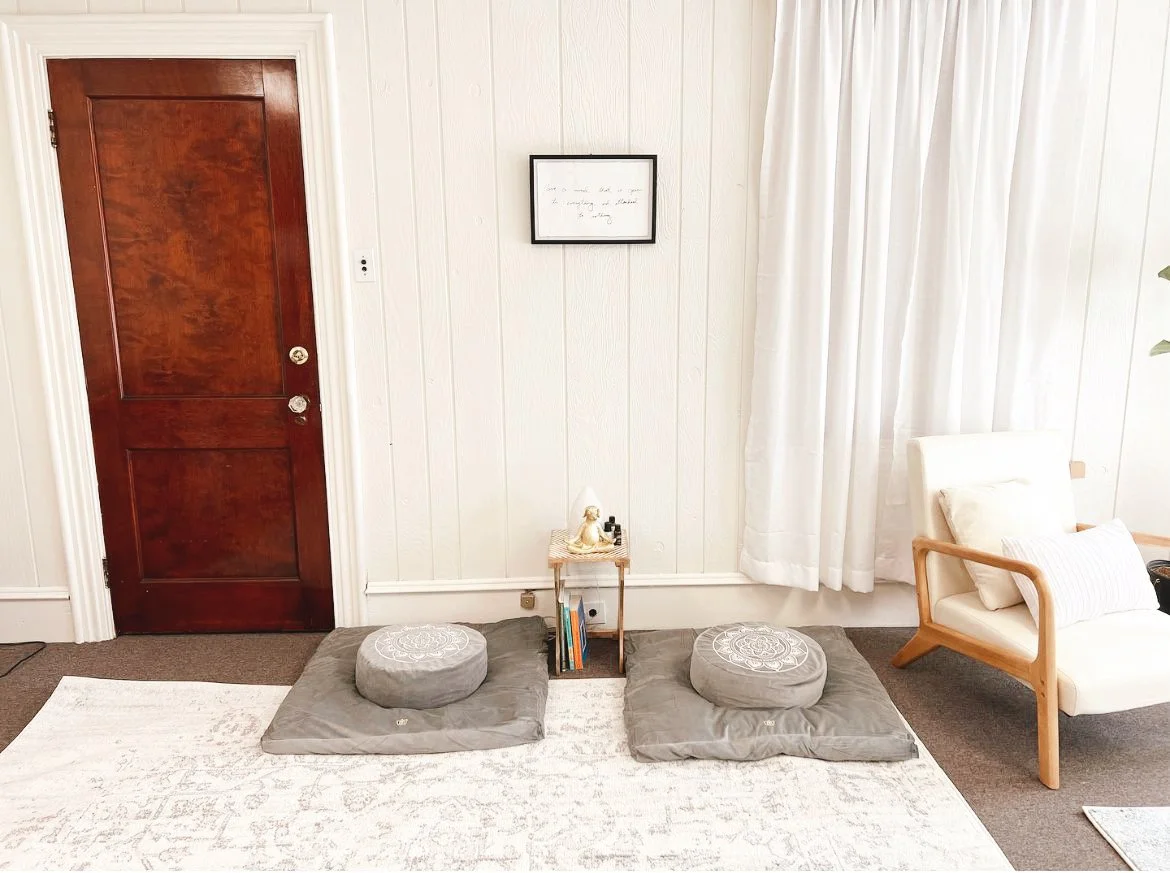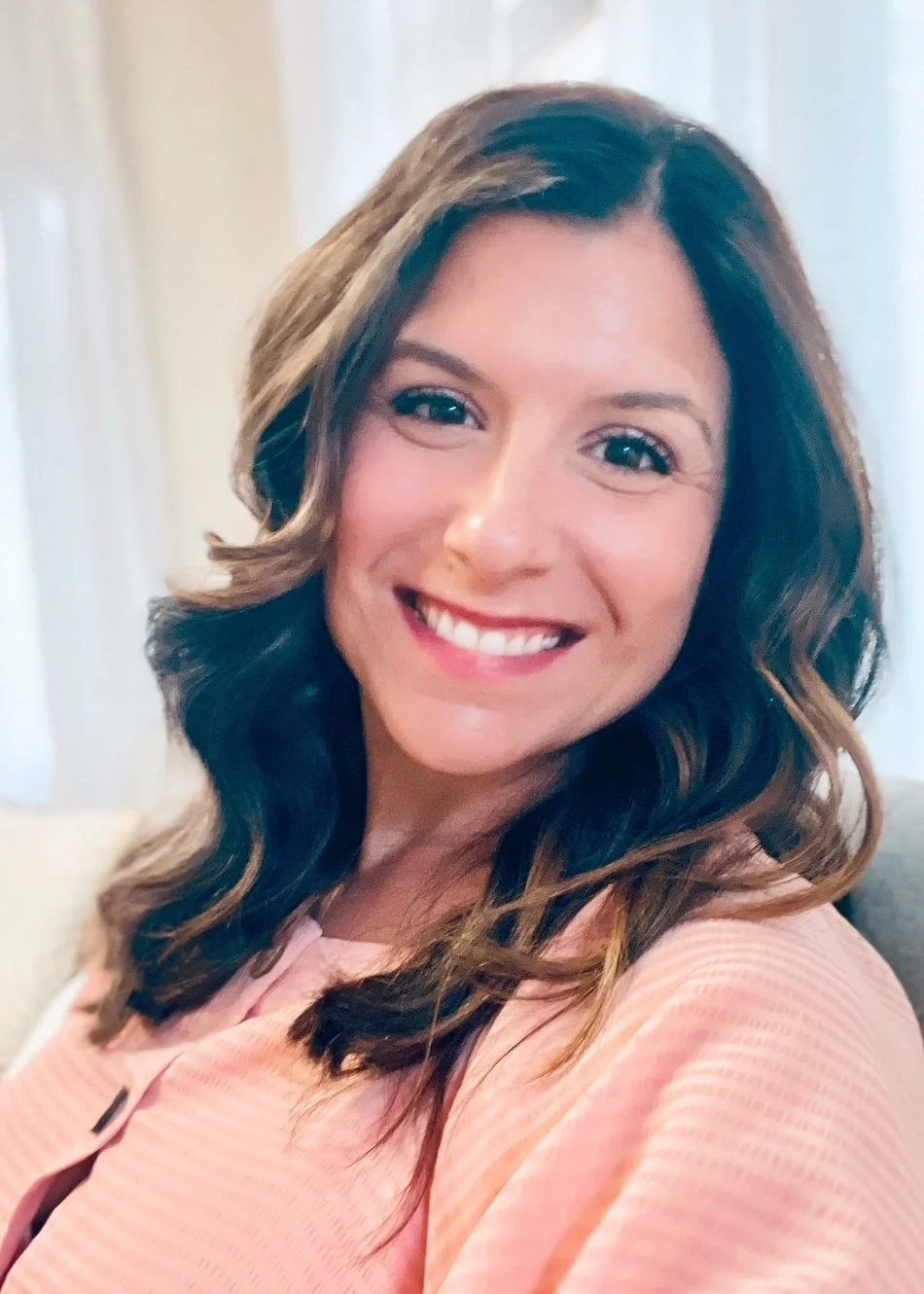Welcome.
I’m Jenna, owner and practitioner of Jenna Cotton, LCSW LLC.
If you’re here as a prospective client, it’s possible you’re ready to deal with something that feels remarkably overwhelming. The only way truly out is through. Let’s navigate it together.
Not Just Therapy…
The goal in every aspect of my business is to provide support. It brings me a great sense of fulfillment to be a helper in many areas of life.
I offer three levels of support in my business:
I support clients by providing trauma-informed care and using evidence based practices in session.
I provide clinical supervision to therapists seeking reflection and assistance with clients or who are in need of supervision towards licensure.
I provide office space, administrative assistance, and/or marketing support to independent therapists with their own private practices.
-
I specialize in treating trauma, anxiety, depression, & interpersonal issues.
I work from a trauma informed, psychodynamic, attachment based perspective.
I am trained in Eye Movement Desensitization and Reprocessing (EMDR), which can be helpful for working with trauma, & I also utilize parts work from Internal Family Systems (IFS). Additionally, I incorporate Mindfulness & Meditation. Treatment is not one size fits all, so we will tailor your therapy to meet your needs.
-
I offer clinical supervision to therapists seeking support with clients, and/or who are in need of clinical supervision towards licensure. My approach is psychodynamic and reflective, often exploring attachment, unconscious dynamics, and understanding how transference and countertransference within the therapeutic relationship can be useful in the clinical work.
-
I offer independent therapists in private practice office space, administrative support, and/or marketing assistance. Often times, private practice can require a lot of administrative tasks that can take time away from the clinical work. My goal is to help therapists focus on therapy by alleviating other stressful business related tasks.
Some support that I provide includes:
Office space
Peer case consultation
Billing support and access to Electronic Health Record (EHR) software for ease of scheduling, maintaining client records, etc.
Support with your own insurance credentialing if you are interested in getting credentialed with panels and don’t know where to begin
Marketing assistance to boost visibility and gain more referrals
My Approach With Clients
Compassionate
When we take the first step to have someone hear about our lived experience and pain, it can feel scary or daunting. My goal is to meet you with warmth and compassion, always.
Collaborative
In my practice, therapy is a collaborative partnership. I bring my clinical skills, expertise, therapeutic tools, and guidance to help you weather life’s challenges, but real lasting change happens when you actively engage in the process. Together we work as a team, combining my skills with your own unique experiences and efforts.
Trauma Focused
A lot of us have likely had experiences that have felt overwhelming and scary. Moments where it feels like we are unable to cope, or as if we are frozen in time and cannot move beyond those incredibly painful moments. It’s also possible that some of us may have had experiences where instead of distressing things happening to us, the nurturing things that should’ve happened and didn’t happen can feel especially disappointing and traumatic as well. All of these things can impact the way we feel about ourselves, our relationships, and the world. I understand this. My goal is to support you in feeling safe to explore these moments so we can create space for healing and corrective experiences.
A Bit About Therapeutic Modalities…
-
To be a trauma informed therapist means to understand how past traumatic or distressing experiences can impact a person’s social, emotional, psychological, and physical well-being. I recognize that trauma is not just an event from the past, but it completely shifts the way a person feels, thinks, and interacts with the world in the present moment.
A trauma informed approach in therapy includes:
Creating Safety- I prioritize physical, emotional, and relational safety, ensuring that clients feel secure and respected in session.
Recognizing the Impact of Trauma- I acknowledge how trauma can influence emotions, behaviors, relationships, and the nervous system. Body work can also be very important in healing.
Building Trust and Collaboration- I foster an environment where clients feel heard and validated, collaborating on therapeutic goals and respecting boundaries.
Avoiding Re-Traumatization- I am mindful about how certain therapeutic interventions may unintentionally trigger distress. I will attempt to adapt or go at a pace that feels comfortable to you in order to avoid overwhelm or flooding.
By integrating these principles in session, I hope to provide a space where healing can unfold at a pace that feels right to you. Whether you are navigating past trauma, dealing with stress, or just seeking personal growth, I am here to support you with care, support, and sensitivity.
-
Working from a psychodynamic perspective means to explore how unconscious parts of ourselves and past experiences can shape how we relate with others in the present. This approach is grounded in the idea that we are greatly impacted from what happens in our early relationships, particularly with our caregivers. By examining patterns from the past, we can gain insight and awareness that can help us to make meaningful changes.
As a therapist using this perspective, I will work collaboratively with you to attempt to uncover hidden feelings, unresolved conflicts, and recurring patterns that may be showing up in your relationships today and impacting your overall well-being. By exploring these deeper dynamics, we can work towards increased self awareness, self-nurturing and coping, and emotional and relational growth.
-
An attachment based perspective is similar to a psychodynamic perspective in that it explores dynamics from early childhood relationships, particularly with caregivers. The goal while holding an attachment based perspective in mind is to better understand what we learned from early relationships. Were these relationships too overbearing, inconsistent, inattentive, disorganized, preoccupied, or stable and secure?
Through exploration of our early childhood attachments, we can have more insight into what comes up for us in relationships today, and how to move towards feeling more secure in our relationships with others.
-
Eye Movement Desensitization and Reprocessing (EMDR) is a type of therapeutic intervention used in session with clients to help people heal from trauma or distressing experiences.
When someone experiences trauma, one’s brain can have difficulty fully processing the event, which can lead to symptoms that can persist long after the event has taken place. EMDR can help the brain to process these memories and put the sequences of the traumatic events back together in a more cohesive manner, which can decrease emotional charge and promote healing.
During an EMDR session we will focus on identifying a traumatic or distressing event and exploring associated belief systems to the event. We will also use bilateral body stimulation to support processing. Bilateral body stimulation can be done in an array of different ways and we will figure out what feels most comfortable for you.
EMDR is known to be particularly effective for trauma, anxiety, PTSD, and other distressing experiences and many people report feeling significant relief in just a few EMDR sessions.
-
Internal Family Systems (IFS) is a therapeutic approach that involves identifying different parts that can exist within ourselves. The idea behind IFS is that we all have different parts of ourselves, or inner voices that can influence how we think, feel, and behave. These different parts are often shaped by past experiences and serve many different purposes for us.
An important part of IFS is to work towards viewing the different parts of ourselves in a non-judgmental and compassionate manner, understanding what these parts have done for us throughout our lives thus far.
Usually, certain parts that exist inside of us can become stuck in old patterns that no longer serve us. The goal throughout IFS is to allow all parts to exist and work together in order to create more balance, heal emotional wounds, release old patterns, and build a healthier relationship with the self.
-
Mindfulness meditation is a practice that can be beneficial for many people looking to improve their emotional wellbeing but can also be particularly helpful for those who suffer from anxiety, stress, chronic pain, or just those looking to create more mental resilience, or spiritual growth.
Mindfulness meditation is a practice that helps us to become more aware of the present moment in a calm and non-judgmental way. This process involves becoming more aware of your thoughts, feelings, body sensations, and continually coming back to the present moment, as many times as you need.
There is no such thing as being bad at meditating. Meditating is a simple concept, but can be challenging at times. That’s okay. The goal of mindfulness meditation is not necessarily to clear your mind completely, but rather to observe yourself with curiosity and compassion when attempting to focus on the present moment.
Through this process you will learn more about what you feel or what you may need moment to moment, and you will build upon your ability to control your monkey mind instead of it controlling you. Overall this practice will decrease anxiety, create more calm, improve stress, and improve focus.
Meet Jen
An Independent Therapist Practicing Under the Same Roof
Get in Touch!
Schedule a free 15 minute consultation with Jenna or another independent therapist sharing this therapy space.
*Currently, Jen Marcella, LCSW also has openings for prospective clients. Jen is warm, trauma-informed, and takes a collaborative approach with clients. She has extensive experience in the field with over 20 years of experience.
FAQ
-
First things first, no need to be nervous. Send an email or give a call to share a little bit about what’s going on for you and what you’re looking for right now. From there, we can set up a 15 minute phone consultation to determine your therapeutic needs.
-
The full session fee is currently $160 per session without insurance.
Jenna Cotton is in network with Aetna and Cigna insurances.
Jennifer Marcella is in network with Aetna and Cigna insurances.
If you are in network with either of these insurances, your session fee will depend on your individual copay or deductible based on your chosen insurance plan. It is always recommended that you reach out to your insurance company prior to session to avoid any confusion about fees.
Here are some questions you can ask your insurance when contacting member services on the back of your insurance card:
“Is my provider in network with my insurance? ”
“What is my copay or deductible for mental health services, particularly outpatient therapy sessions with the CPT codes 90837, 90846, & 90834?”
“If I have a deductible to meet, what is my deductible amount that I must pay out of pocket first, and what is the session fee once the deductible has been met? When does my deductible reset for the year?”
*Please note, if you have a deductible plan, you will need to pay the contracted rate that your insurance company has with your therapist until your deductible has been met.
If your therapist is Out of Network (OON) for you, check with your insurance company about your OON benefits. If you have OON benefits, you can request an invoice from your therapist to submit to your insurance company for OON Reimbursement.
Jenna Cotton and Jen Marcella can also work with clients on a sliding scale. Feel free to ask about this if you need support with this.
-
Jenna Cotton currently works in person or virtually on Tuesdays, Wednesdays, and Fridays between the hours of 8am and 5pm. Jenna also has some virtual evening appointments throughout the week from 6-8pm.
Jen Marcella is currently available on Mondays and Thursdays. Jen currently has openings on Monday mornings/afternoons.
-
The office is located at 770 Marne Highway in Moorestown, NJ.
There is a parking lot on site and a waiting area inside.
*Please note, the office is located on the second floor of the building and the building is not handicap accessible. Telehealth sessions can always be an option if needed.
Jenna Cotton LCSW LLC is a shared office space and administrative hub used by independently licensed therapists. Each therapist operating under this practice name is a separate and independent business entity responsible for their own clinical services, documentation, scheduling, and treatment decisions.
While therapists may share resources, billing systems, administrative support, each provider operates as an independent contractor and is not an employee or agent of Jenna Cotton, LCSW LLC.
If you have any questions or concerns about your care, please speak directly with your individual provider.





